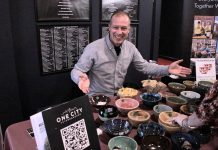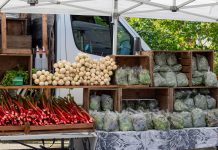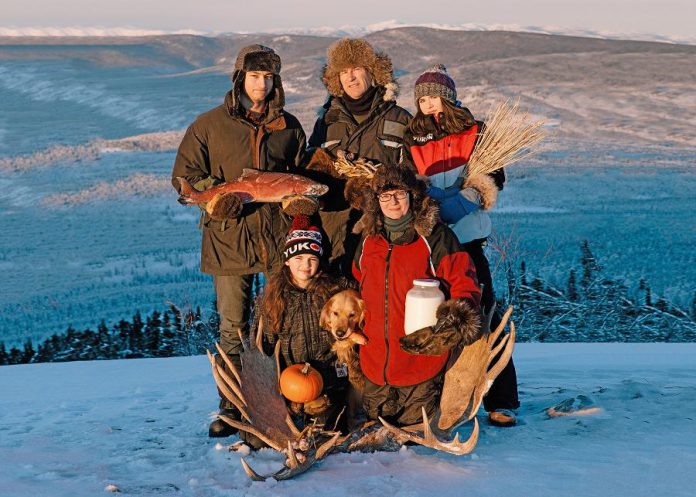
The first-ever virtual 2021 ReFrame Film Festival takes place from January 22 to 29 and features almost 50 documentaries of various lengths.
The aim of the festival is to inform and engage our community in social and environmental topics through film.
Below are selections from interviews with three of the filmmakers whose films are screening during the festival. Full transcripts of each interview are available at greenup.on.ca/reframe-2021-interviews/.
Olivia Mater on “Starborn”
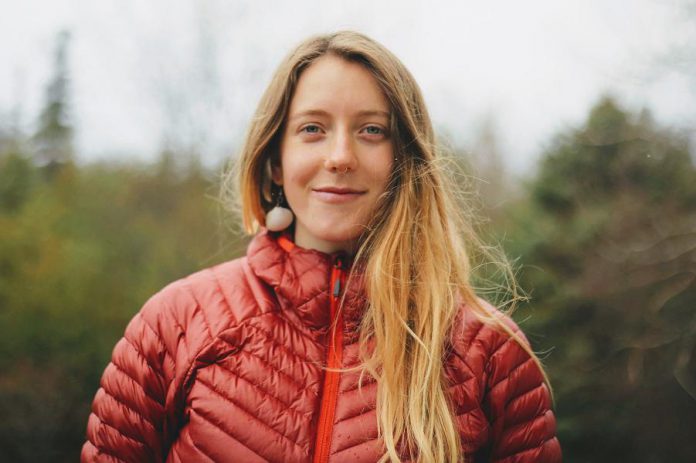
Olivia Mater is an emerging filmmaker and a recent graduate from the Indigenous Studies program at Trent University.
Tell me about the setting of your film: where and when does it take place?
The film takes place 50 years in the future. The setting of the film is my parents’ backyard, on the homelands of the Saugeen Anishinaabeg. A grandmother is weaving a story for her grandchildren. [They are] gathered around a fire to hear the stories of [today], now, 50 years in their past.
We usually think of memory as something that only looks backwards, but your film asks us to imagine memories of the future. Why is that important to you?
As a settler here, that way of looking at time and looking at the world has been taught to me by the Indigenous teachers I have had in my life, and specifically Joanne Argue [at Trent University].
She was constantly beckoning us to think about time in a non-linear way, and think about what it means to live and exist while looking forwards and backwards at once. Every action we do now affects the ones who are not here yet.
We are also part of a lineage of ancestors who dreamed worlds into being so we could be. Our responsibility is to do the same.
Suzanne Crocker on “First We Eat”
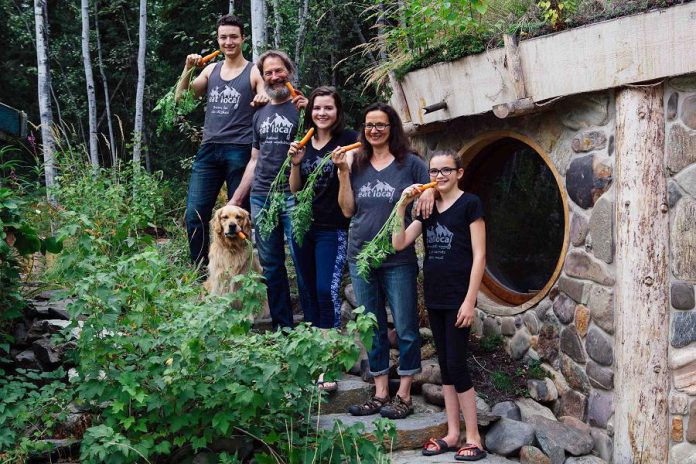
Suzanne Crocker is an award-winning filmmaker living with her family of five in Dawson City, Yukon.
Why did you decide to eat 100 per cent local food for an entire year? Why not an incremental commitment to eat more local, or a commitment over a shorter period of time?
We are on the traditional territory of the Tr’ondëk Hwëch’in. I was inspired that Indigenous folks ate 100 per cent locally for thousands and thousands of years prior to colonization. Even a hundred or so years ago, when settlers first came to this area, Dawson was apparently able to produce 97 per cent of our food. Now 97 per cent of our food is trucked in from thousands and thousands of kilometres away.
My goal was to put food sovereignty to the test here in the north. I really wanted to know if we could still do this in this era. Rather than just research this academically or bring in a bunch of experts to talk about food sovereignty in the north, I thought one of the best ways would be to try it.
A lot of people are accustomed to a culture of rushing and convenience. How did those habits or tendencies change during that year?
There is this irony in life that the more modern conveniences we have in our life that are meant to save us time, the less time we seem to have.
There are some silver linings to slowing down in the kitchen, to actually making food and cooking. It can be a very meditative time.
VIDEO: “First We Eat” trailer
Can you share your reflections on the labour that was involved in getting your food for that year, and the implications of that labour and the financial costs of food more broadly in your community and around the world?
Speaking to financial costs, taking the labour costs out of the picture for a moment, I did track what it cost to purchase our food that year from local farmers [and found] it was more costly to eat 100 per cent local, by about 25 per cent.
What I also came to recognize that year was the cost to produce food. When we were buying things in the store that were less expensive — somewhere along that food chain from seed to plate — that cost was coming out at someone else’s expense. It is important to recognize that, if we are able, we should support and pay for the true cost of food.
Of course, not everyone is able to do that. It is important that those of us who are able, that we do. It is important that those people in positions of bigger procurement and buying power, also start promoting and sourcing their food locally.
Karen O’Krafka on “Headwaters to Hearts: Education in Action”
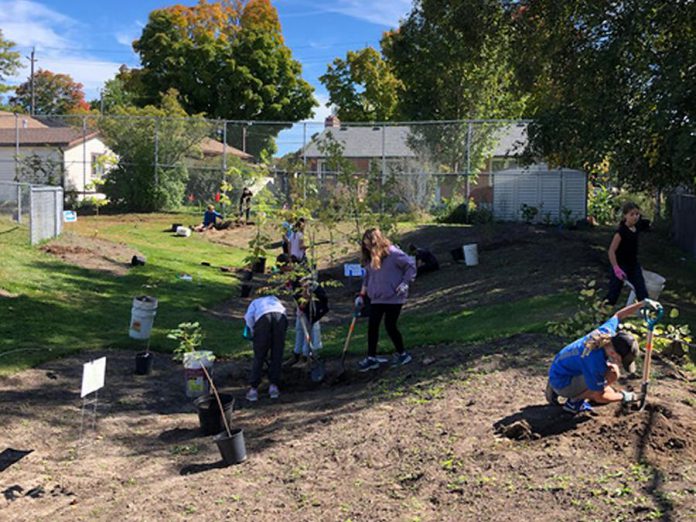
Karen O’Krafka coordinates GreenUP’s Wonders of Water program. She shares her thoughts on the GreenUP film “Headwaters to Hearts: Education in Action” and the project it features: a student-led project to transform the flood-prone area of a Peterborough school into a rain garden.
What is one lasting impact, for you, of the project and the film that came out of it?
This [Wonders of Water] project was especially poignant. I remember doing a sub-watershed tour with those leadership students on March 12, 2020; the day before the provincial lock-down came into effect. That was powerful.
They talk a lot [in the film] about that day, about the tour, about getting that really good sense of where the headwaters of Jackson Creek begin. They talk about ending the day where Jackson Creek flows into the Otonabee with a Sacred Water Ceremony with Curve Lake Elder Dorothy Taylor.
If ever we had to plan how to send kids into a turbulent and vulnerable time — not that we ever want to do that — but if we did, this is a beautiful way to do it.
For details about the ReFrame Film Festival, and to purchase all-access passes or festival 5-packs (where you can choose five films to watch), visit my.reframefilmfestival.ca.
kawarthaNOW is proud to be a sponsor of the 2021 ReFrame Film Festival.





